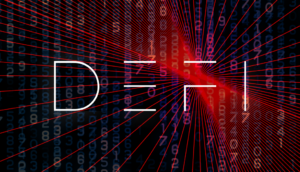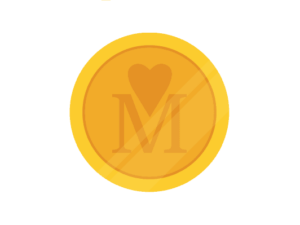Dubai’s Rapid Development and Receptive Environment
Since the 60s under Sheikh Rashid bin Saeed Al Maktoum, the Emirate of Dubai has developed the city of Dubai at an extraordinary pace, culminating in the phenomenal growth seen over the last couple of decades. From a humble trading port, Dubai has been transformed into one of the most popular luxury tourist destinations in the Middle East, in addition to being the region’s undisputed status as a financial hub.
To achieve such rapid development, the Emirate’s leadership not only poured in copious investment funding (predominantly derived from the oil discovered off Dubai’s coast in 1966) but also established a multitude of Special Economic Zones across the city, to foster business growth and attract foreign investment. Numerous technology, finance, and media companies have been established in Dubai as a result, forming a receptive environment for Bitcoin.
Dubai and the UAE Embrace Blockchain Technology
Under the ambitious UAE Blockchain Strategy 2021 announced in April 2018, the region intends to become the world’s first “government on the blockchain”, with half of federal transactions made via cryptocurrency by the aforementioned date. In July of 2021, Dubai’s state-operated Emirates NBD bank and the Department of Economic Development launched a KYC (Know Your Customer) platform based on blockchain technology. This system already has hundreds of participating companies and promises to speed up all kinds of financial processes within the country.
As part of the Crown Prince of Dubai’s Dubai Blockchain Strategy announced in 2016, a multitude of blockchain-based initiatives have been launched. These initiatives aim to improve governmental efficiency, legal processes, public happiness, and the ease of doing business. These ventures include:
- Smart Dubai: Shifts administrative functions such as billing, visa application, and license renewal into a blockchain system by 2020, reducing costs and increasing efficiency.
- Court of the Blockchain: Aims to bridge the gaps between the traditional legal system and blockchain-based smart contracts, initially focusing on reducing paperwork and improving legal efficiencies.
- The Dubai Blockchain Business Registry Project: Developed in partnership with IBM, it creates a blockchain-based Unified Commercial Registry to better issue, store, and manage trade licenses, starting with the Dubai Silicon Oasis free zone.
- Dubai Land Registry’s blockchain property database: Records property ownership, secures property-related money transfers, and facilitates communication between property owners, tenants, and utility providers.
In May of 2020, Dubai’s port operator, DP World, adopted the TradeLens blockchain-based shipping and supply chain platform developed by IBM and Maersk.
Bitcoin is Considered Halaal under Sharia Law
In April of 2018, Bitcoin was declared acceptable under Sharia Law, opening the door to Bitcoin and cryptocurrency investment by Muslims around the world. Note that this declaration should not be presumed to extend to each and every cryptocurrency, as some contain an element of interest earned on loans.
Bitcoin’s Legal and Tax Status in Dubai
Although Dubai and the UAE have clearly embraced blockchain, the legal and tax status of Bitcoin in Dubai is still somewhat unclear. While the UAE central bank’s ruling initially prohibited “virtual currencies,” the central bank’s governor clarified that the prohibition does not extend to cryptocurrency. Buying and selling Bitcoin is considered a “tolerated practice” within the UAE, with regulators not prosecuting those who trade in it. The Dubai Financial Services Authority has warned against the high risk of cryptocurrencies but does not regulate them. The taxation situation regarding cryptocurrencies is currently unclear, and further legislation is pending to clarify the legal status of Bitcoin in Dubai.
Conclusion
Dubai is likely to emerge as a regional or even world leader in the implementation of blockchain technology. The Emirate’s rapid development, receptive business environment, and ambitious blockchain initiatives set the stage for significant growth in the cryptocurrency space. The UAE Blockchain Strategy and various government-led projects demonstrate a commitment to embracing the potential of blockchain technology.
How to Buy Bitcoin in Dubai and the UAE
Coinmama allows people in Dubai and the UAE to buy Bitcoin via a bank transfer or with a debit or credit card issued by either VISA or MasterCard. If you’re looking to buy Bitcoin in Dubai, click here and follow the simple steps to get started.
With the right knowledge and a trusted platform like Coinmama, you can participate in the exciting world of Bitcoin and contribute to Dubai’s journey as a leading blockchain hub.
Curious Queries: Delving Deeper into Dubai’s Blockchain Landscape
1. How does blockchain technology benefit Dubai’s governmental processes?
Blockchain enhances governmental efficiency by digitizing administrative functions (billing, visa applications, license renewals) and legal processes. This not only reduces costs but also increases operational efficiency, streamlining public and business transactions in Dubai.
2. What makes Bitcoin acceptable under Sharia Law in Dubai?
In April 2018, Bitcoin was declared compliant with Sharia Law, mainly because it does not involve interest on loans, a key factor that aligns with Islamic finance principles. This declaration boosts Bitcoin’s acceptance among Muslim investors.
3. What is the legal status of Bitcoin in Dubai and the UAE?
While the initial stance on virtual currencies was prohibitive, the UAE Central Bank clarified that this does not extend to cryptocurrencies like Bitcoin. The practice of buying and selling Bitcoin is tolerated, with the legal and tax implications still evolving as the region adapts to this new asset class.



